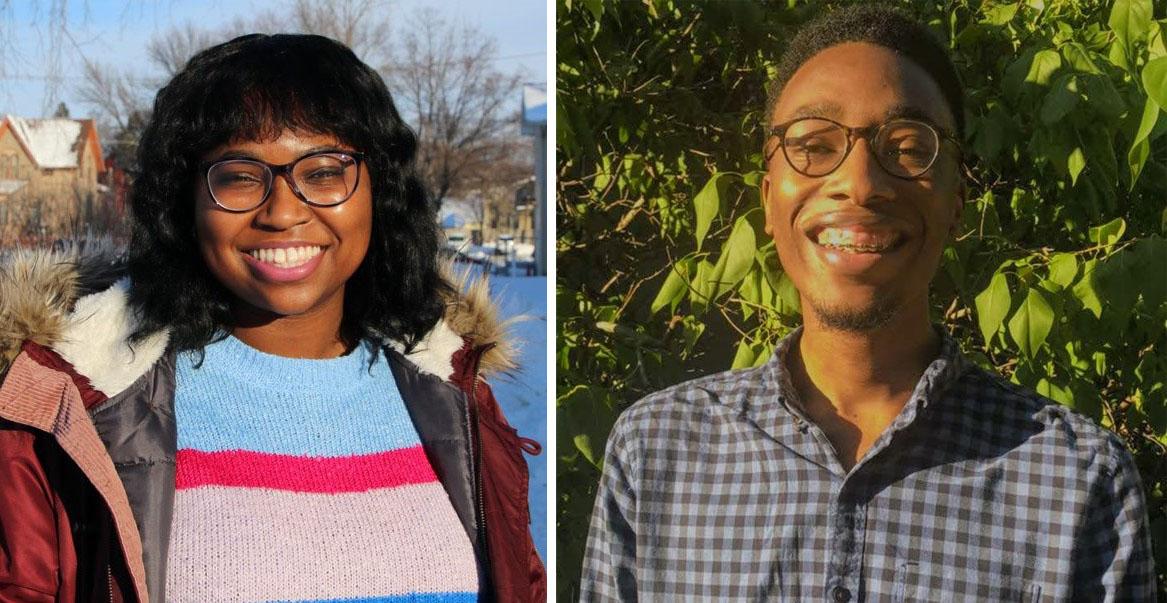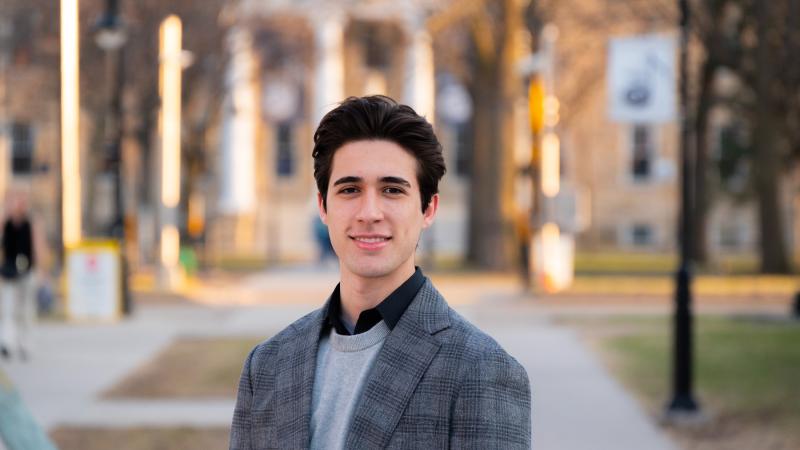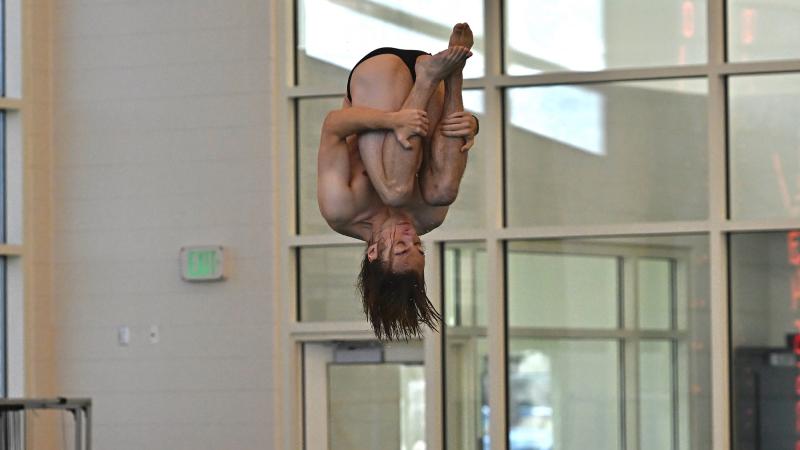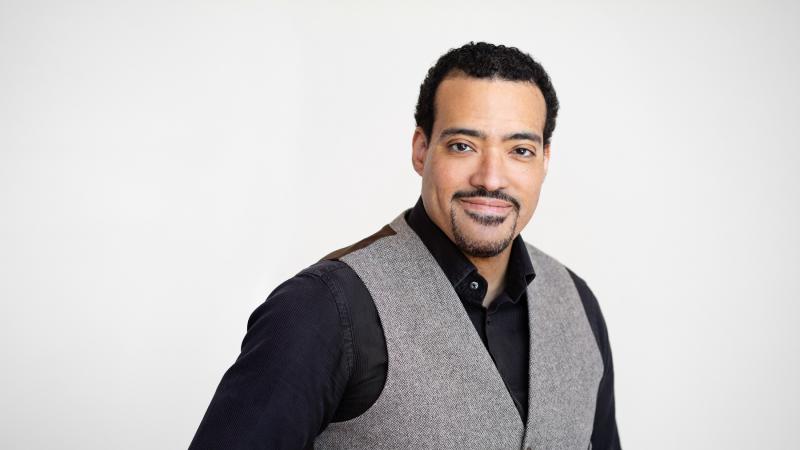Lawrence University’s celebration of Black History Month during February includes a series of student-organized events that are shining new light on Black history and culture.
The series comes out of new collaborations between the Diversity and Intercultural Center (D&IC) and the Black Student Union (BSU), led by Sarah Navy ’22, the president of BSU, and Malcolm Davis ’23, program coordinator for the D&IC.
“After attending any of these events people will hopefully leave having learned something new that they can then share with others,” Davis said. “Putting aside sharing, individual growth is huge as well. After attending one of the events, you may leave with a different perspective, or a new understanding of a topic. All of this, I think, will elevate conversation and education surrounding Black history.”
The new series kicked off Feb. 2 with Black History Jeopardy and continues with the following virtual events:
6 p.m. Feb. 9: Film screening of the documentary Talking Black in America.
4-9 p.m. Feb. 11: African Heritage Emerging Leaders Institute.
6 p.m. Feb. 16: A Q&A discussion of the film Talking Black in America. The discussion will be facilitated by Associate Producer Renee Blake, who is featured in the documentary. She will co-facilitate with Executive Producer Walt Wolfram.
6 p.m. Feb. 23: A book discussion of Heavy, open to BSU members only.
Information on how to access the events can be found here.
The series augments other activities in February organized by either the D&IC or BSU or in collaboration with other student groups, including Lunar New Year (Feb. 13), Cultural Expressions (Feb. 27), and a range of activities during the final week of February titled AIO Presents Honoring Black History.
Events to catch in a busy Winter Term.
Cultural Expressions will be a virtual event this year. Watch for details to be announced.
“We want to have an event that would allow us all to come together, on-campus or not,” Navy said. “And for those of us here, we wanted to do it the safest way possible. The theme for this year will be ‘Black Love’.”
Meanwhile, AIO Presents Honoring Black History will be held Feb. 21-27. To be presented virtually, it’s a collaborative effort between various student organizations, including All is One (AIO), BSU, Beta Psi Nu (BYN), Pan-Asian Organization (PAO), LU Native Americans (LUNA), and Colores. The focus is on “understanding the intricacies of our communities and how blackness can be centered to educate and develop relationships.” A kickoff dinner with limited seating, hosted by AIO, is being organized for Feb. 21. The virtual sessions to follow include:
5 p.m. Feb. 22: Brown Girl Recovery, with Brienne Colston ’15, hosted by BYN.
6 p.m. Feb. 24: Building Generational Wealth in the Black Community, with Cordero Barkley, hosted by BSU.
5 p.m. Feb. 25: Anti-Blackness in the Asian American & Pacific Islander Community, with Maddie Schumacher, hosted by PAO.
7 p.m. Feb. 25: Keynote with Menominee speaker Sasanehsaeh Jennings, hosted by LUNA.
4 p.m. Feb. 26: Loving Radically, with Yante Turner, hosted by Colores.
Students can look for access information to the virtual events in the weekly LU Insider.
Navy said the BSU’s annual presentation of Cultural Expressions remains an important February event, but the launch of these student-directed Black History Month events, and the collaboration with other student groups and the D&IC, will hopefully widen needed conversation on campus.
“There are certain things that need to be understood to move forward,” she said. “I believe that the education, the continuance, and the familiarity of these events can propel us in the right step of accepting and appreciating, and not appropriating, Black culture.”
Davis said the events stem from a desire to go deeper into Black history. Collaborating with the BSU seemed a perfect fit.
“This collaboration allows the D&IC and BSU to combine our resources to produce programming for our community that we have not seen in years past,” Davis said.
Navy said she’s particularly looking forward to the screening of Talking Black in America and the conversation to follow. The documentary explores the history of African American speech, from legacy and identity to linguistic profiling, language-based discrimination, and public misunderstanding or misrepresentation.
“I get a chance to learn about a part of me that is seen as either something that needs to be excused to some or something that can be appreciated by others, and I rather do the latter,” Navy said. “What also makes this special is that the event is open to the whole campus to learn as well.”
Davis and Navy said they are hopeful this year’s Black History Month events will be the start of annual collaborations.
“I do expect this to become an annual event,” Navy said. “Black history is American history. Black history is now. I am hoping that once my colleagues and I move on, this intentionality and passion for creating a space for Black culture will continue to thrive.”




